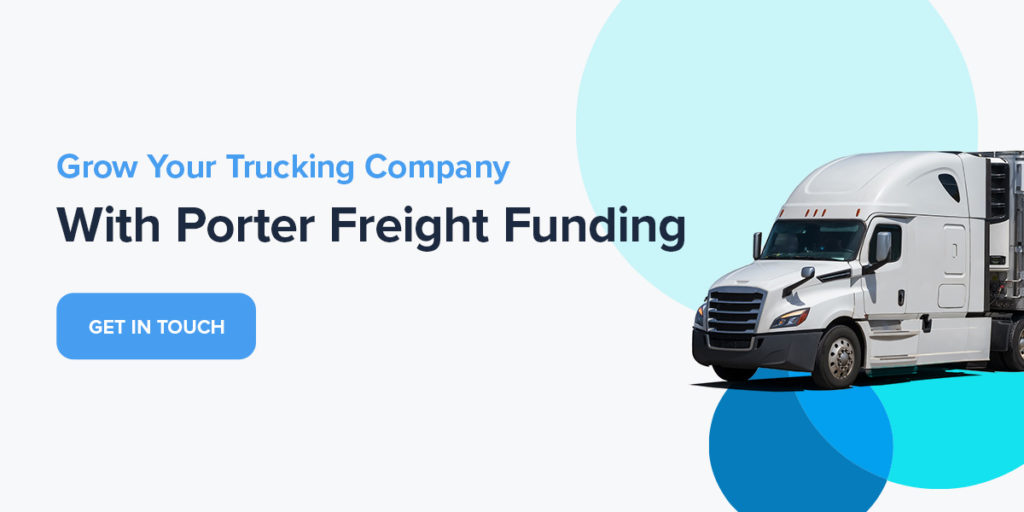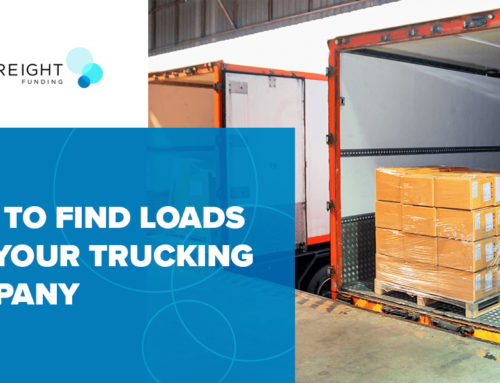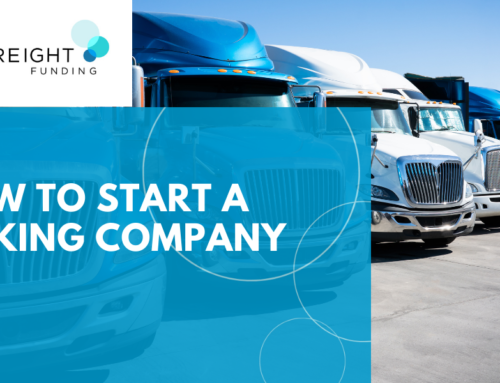What Is the Best Business Structure for Trucking Companies?
Trucking companies play a crucial role in the supply chain by transporting products to stores, warehouses or directly to customers. More than 13 million registered trucks transport almost 11.5 billion tons of freight annually. With the increased demand for truck drivers, starting a trucking company correctly can help you and your fleet stay on the road to success.
Before you hand in your registration paperwork, you need to know what type of authority is better for a small trucking business and which business structure you want to choose. We also discuss specific types of trucking companies, such as for-hire carriers, owner-operators and interstate carriers.
Common Business Structures for Trucking Companies
There are four roads you can go down when forming your business entity and filing for trucking authority:
- Sole proprietorship
- Limited liability company (LLC)
- Partnership
- Corporation
To determine the best entity for your trucking company, we’ll expand upon these business structures to better understand what may work best, depending on your situation.
Sole Proprietorship
The sole proprietorship is the simplest structure where one person owns and operates the entire business by themself. This structure is very common among trucking companies as it is one of the easiest to start. If you don’t create a business entity, the state defaults your trucking company as a sole proprietorship. However, there is no separation between your personal and business affairs. This includes profits, losses, taxes, business-related incidents and liabilities. Any lawsuit against your business is essentially against you as the owner.
Below are some additional considerations and tips to keep in mind if you choose to establish your trucking company as a sole proprietorship:
- If you want to do business under a different name than your own, you must file a “Doing Business As” (DBA) certificate. You can file a DBA at any clerk’s office and pay a small fee before starting.
- Just start your company! You don’t have to file any additional paperwork to start as a sole proprietor. The process is quick and easy.
- All business profits and losses must be filed on your personal tax return. There is no corporate tax as it is an unincorporated business.
Partnership
A partnership is a business arrangement where two or more people, called partners, come together to run a business. When two or more owners don’t register as an LLC or corporation, their business structure automatically classifies as a partnership. Except for the number of owners, partnerships share many similarities to sole proprietorships:
- Personal and business assets are combined.
- The partners carry responsibility for any incidents.
- Lawsuits against the business put personal assets at risk.
This business structure is based on mutual trust and collaboration where each partner contributes their skills, resources or capital to the business. This allows them to combine their expertise and share the workload. The partners share equal ownership of the company, meaning they share the profits and losses equally.
Limited Liability Company (LLC)
An LLC is also an unincorporated business but experiences a higher level of protection than sole proprietors. LLCs combine the flexibility of a partnership with the limited liability protection of a corporation, which is why many people keep trucking as an LLC. Because it is unincorporated, LLC members have to file all income and expenses on an individual tax return rather than a corporate tax return. Individual members are not completely separate from an LLC, but unlike sole proprietors, they are not held personally liable in lawsuits against the business.
To create an LLC, all documents and fees should be filed in the state where you want to form your business. These tips will help you form an LLC as your business entity:
- File all documents with your state. These documents include the articles of organization and an operating agreement. Ensure that your state offers an LLC as a business entity, as not all states do.
- Some states require you to have an operating agreement but don’t require you to file it with them. It mainly works as an internal document that outlines what business you will operate, how it will run, payroll processes and share of profits and losses.
- All business profits and losses must be filed on your personal tax return. Make sure to consider any deductions you can write off for your trucking company when filing taxes.
Corporation
A corporation is a type of business entity formed by registering with the government. One key benefit of a corporation is the limited liability for the owners, who are called shareholders. The shareholders’ personal assets are generally protected if the company faces debts or legal issues. This allows shareholders to invest in the company while mitigating personal risks.
Corporations have more formalities and requirements compared to other business structures. A designated board of directors makes important decisions and is accountable to the shareholders. While corporations offer many advantages and tax benefits, they come with additional compliance obligations:
- Annual meetings with recorded minutes
- A documented organizational structure
- Extensive accounting records
What Is the Best Business Structure for Your Trucking Company?
Choosing the best business structure for your trucking company will depend on several factors, including the liability protection, tax implications, operational flexibility and growth potential you seek. Here are some common trucking business structures:
- For-hire carriers: These companies provide transportation services to shippers and customers on a fee or contract basis. They operate under the Federal Motor Carrier Safety Administration (FMCSA) and often need a Motor Carrier Authority Number (MC number) to haul federally regulated commodities. Because of these requirements, it may be easier to choose a business structure that separates personal and business assets. An LLC or corporation could be advantageous for for-hire carriers as they deal with various clients and operational risks.
- Owner-operators: Many owner-operators choose to operate as sole proprietors or single-member LLCs due to the simplicity, ease of setup and straightforward tax reporting. Owner-operators can grow their business with the help of freight factoring companies.
- Freight brokers and forwarders: Although there are differences between freight forwarders and brokers, both play an intermediary role in arranging transportation services for their clients. Freight brokers need limited additional equipment, assets and insurance compared to freight forwarders, who are more hands-on and take physical possession of cargo.
- Private carriers: In contrast to for-hire carriers, private carriers transport their own goods or products for internal use or distribution within a company’s supply chain. The best business structure for this type of company will depend on the number of owners, the distance and the type of goods transported.
- Intrastate and interstate carriers: Intrastate carriers operate within the borders of a single state and only need to adhere to state-specific regulations and the Department of Transportation. Interstate trucking companies cross state lines and must follow the FMCSA and federal safety standards. Forming a corporation works well for both types of carriers.
It’s best to consult with legal and financial advisors to determine the most suitable business structure based on your needs, goals and operational requirements.
Grow Your Trucking Company With Porter Freight Funding
Once you have established your business structure, filed all documents, and paid the fees, you can get your commercial driver’s license (CDL) and become an owner. If you need further assistance with starting your trucking business, Porter Freight Funding is here to assist. As an established leader in the industry, we offer several services to assist all types of growing trucking companies in staying compliant with industry regulations and speeding up the time it takes to get paid on outstanding trucking loads. We specialize in helping the following types of trucking companies:
- Established carriers and large trucking fleets
- Small to mid-sized fleets
- Owner operators
- Freight brokers
For more information on how to get your new trucking company compliant or improve your business cash flow through freight factoring, reach out to get in touch with us today.



